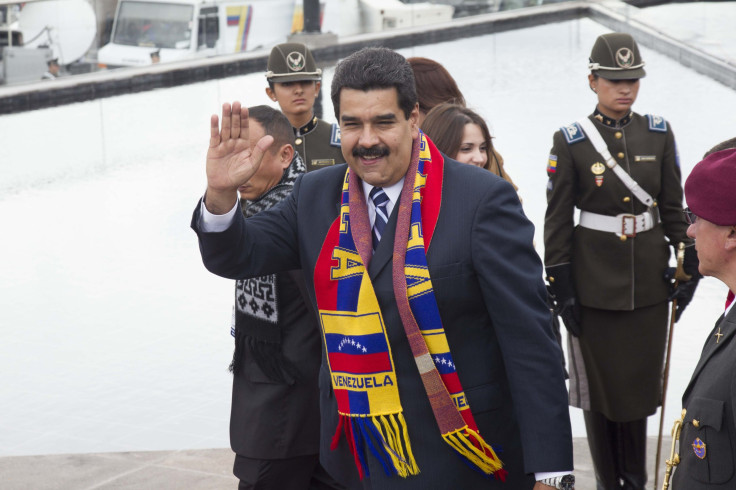US Congress Passes Venezuela Sanctions Bill Due To Human Rights Violations Against Caracas Protesters

The House of Representatives passed a bill of sanctions targeting Venezuelan officials involved in cracking down on protesters earlier this year. President Nicolás Maduro has lashed out against the sanctions bill, calling it an instrument of U.S. imperialism.
The bill will authorize the White House to freeze assets and deny U.S. visas to any Venezuelan officials who are deemed culpable in any human rights violations against protesters during demonstrations that rocked Caracas in the spring and resulted in 41 deaths. The U.S. Senate passed the bill earlier this week, and President Obama will likely sign it. Maduro blasted senators on Tuesday over the measures, saying he would not accept “sanctions of insolent imperialists.”
“The Bolivarian Revolution of President [Hugo] Chávez will not be terrified by sanctions promoted by the lobby of the Venezuelan right,” he declared in a televised address.
Earlier this year, Assistant Secretary of State for Western Hemisphere Affairs Roberta Jacobson pushed back against Venezuelan sanctions, saying they could disrupt peace negotiations between the Maduro government and the opposition. But last month, Deputy National Security Advisor Tony Blinken said the White House’s position has changed, as there has been no progress on peace talks and opposition leaders have been unable to free political prisoners. While it’s unclear exactly how many officials may wind up being affected, bill sponsor Sen. Marco Rubio, R-Fla., previously named 23 Venezuelan ministers and advisers who could be targets of the sanctions.
Two of the protest movement’s most high-profile leaders, former Chacao Mayor Leopoldo López and former lawmaker María Corina Machado, are facing criminal charges by the Maduro administration. López has been on trial for several months for allegedly inciting violence during the protests, and Machado was charged last month for conspiring to assassinate Maduro.
In July, the Obama administration issued travel bans on a group of Venezuelan officials that it claims participated in the protest crackdown earlier this year. But some lawmakers, including Sen. Rubio, have said those travel bans did not go far enough. On Wednesday, he lauded the House’s passage of the sanctions bill. “With these sanctions, we can end the days of Venezuelan regime officials and thugs repressing innocent Venezuelans in their day jobs and then coming to Florida to live in the lap of luxury and splurge Venezuela’s wealth,” he said in a statement.
But some warn that the sanctions may backfire with Venezuela’s economy already on shaky ground with high inflation and chronic shortages. Maduro may use the bill as “an attack against the country to try to distract public opinion from the economic crisis that the country is facing,” Barclays warned, according to the Financial Times.
© Copyright IBTimes 2025. All rights reserved.






















